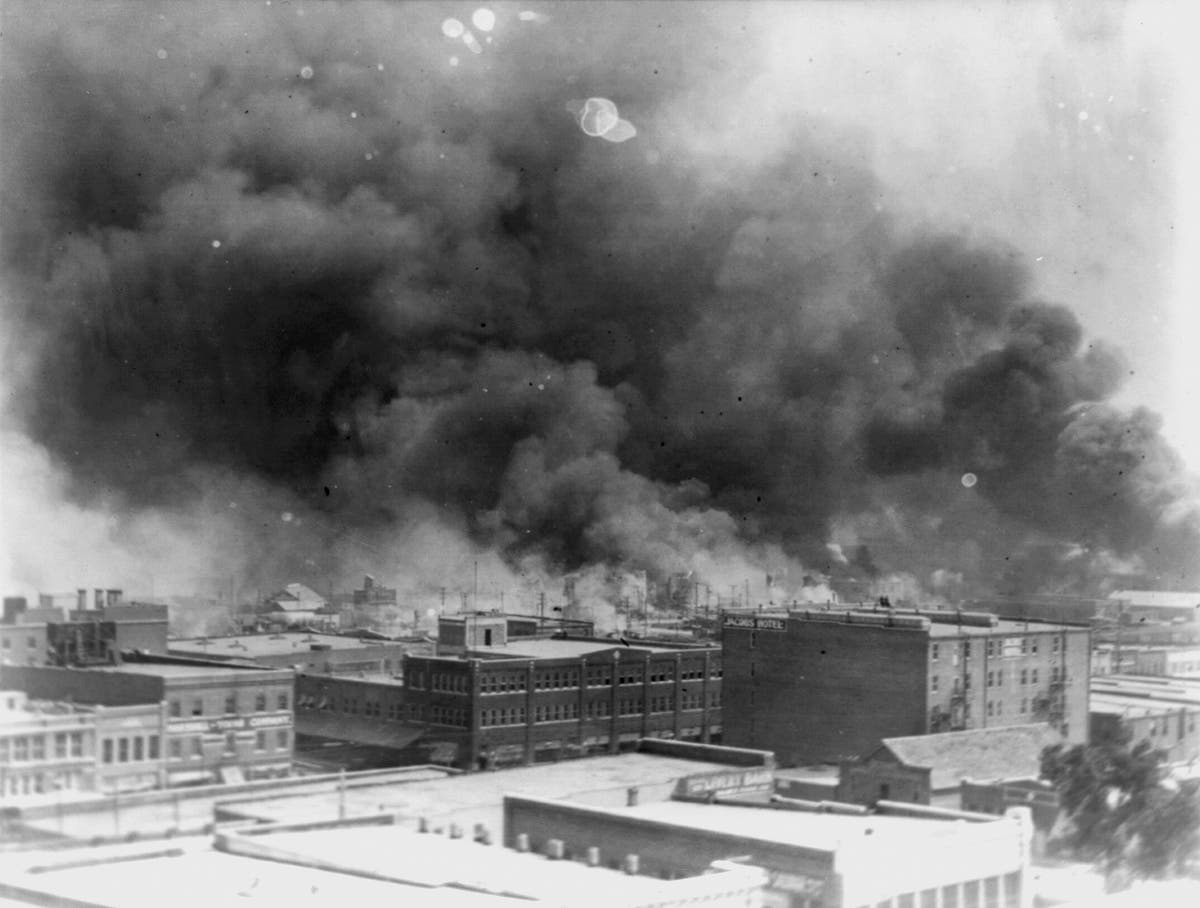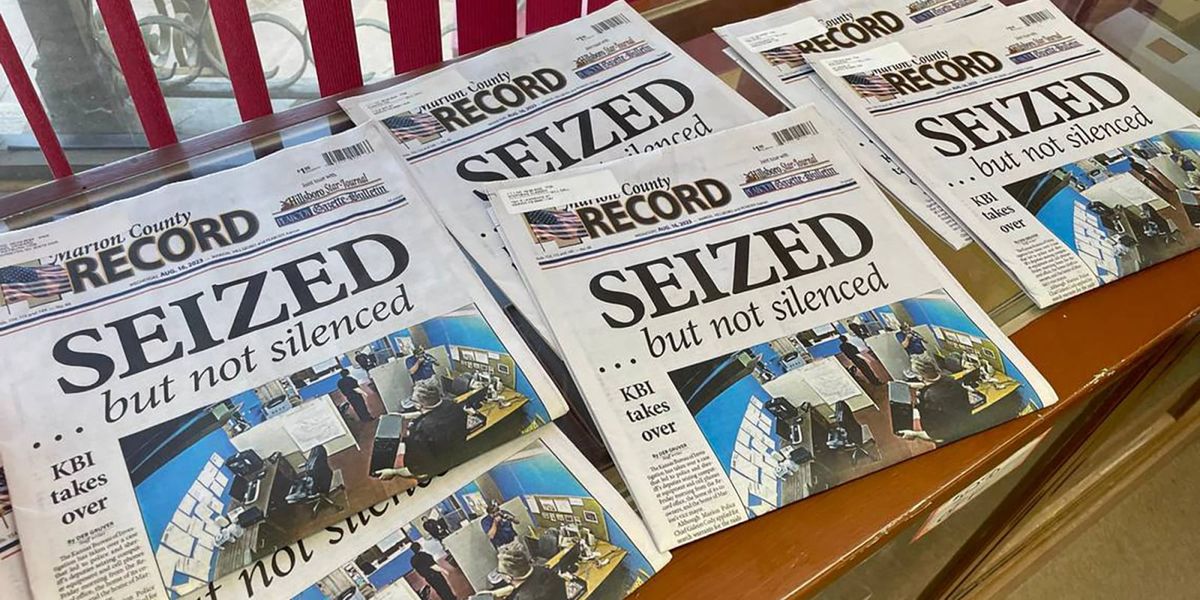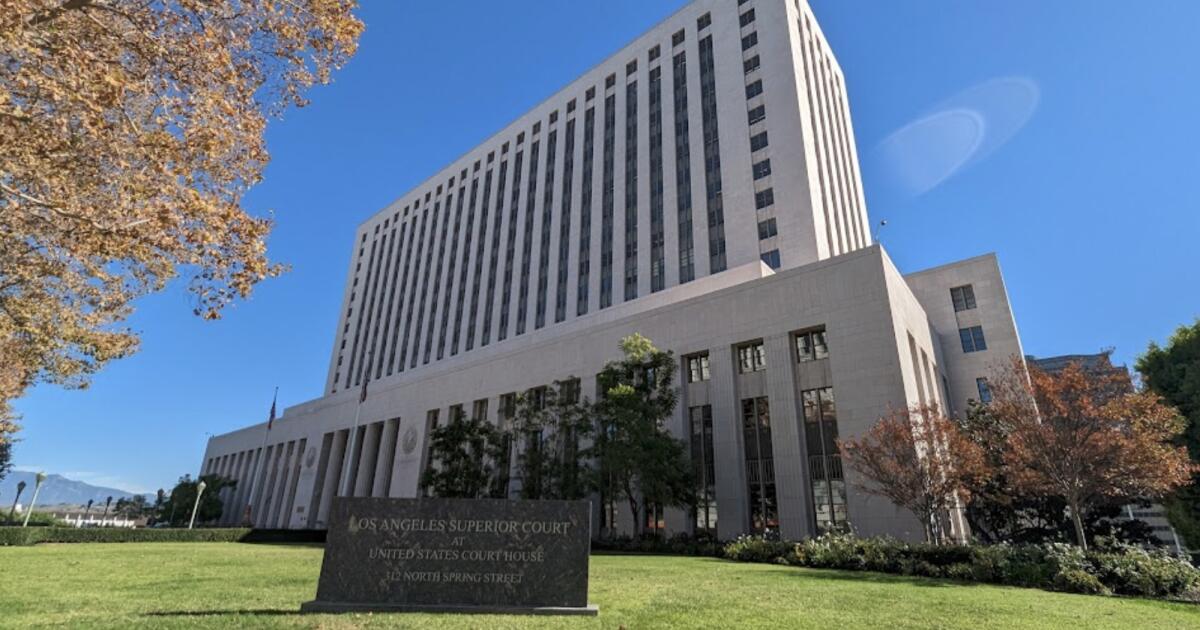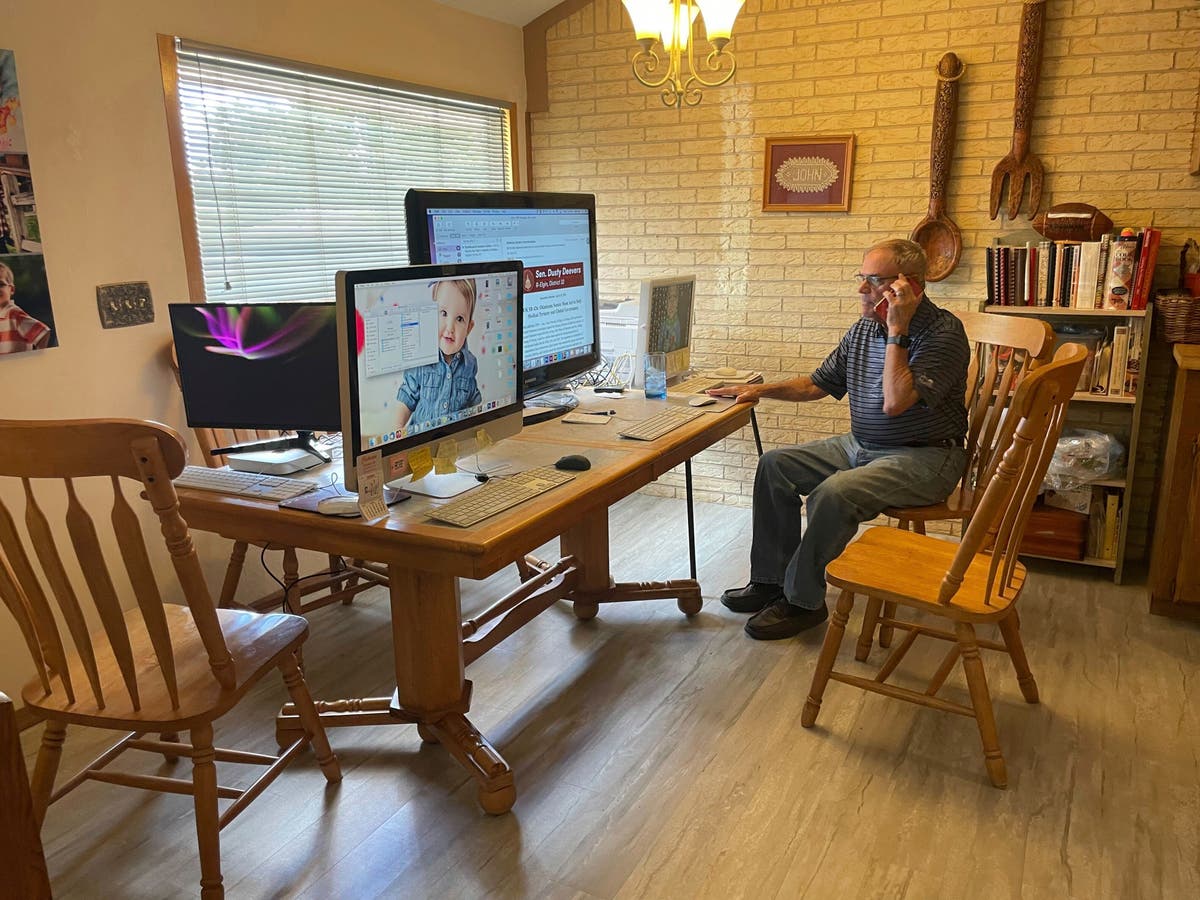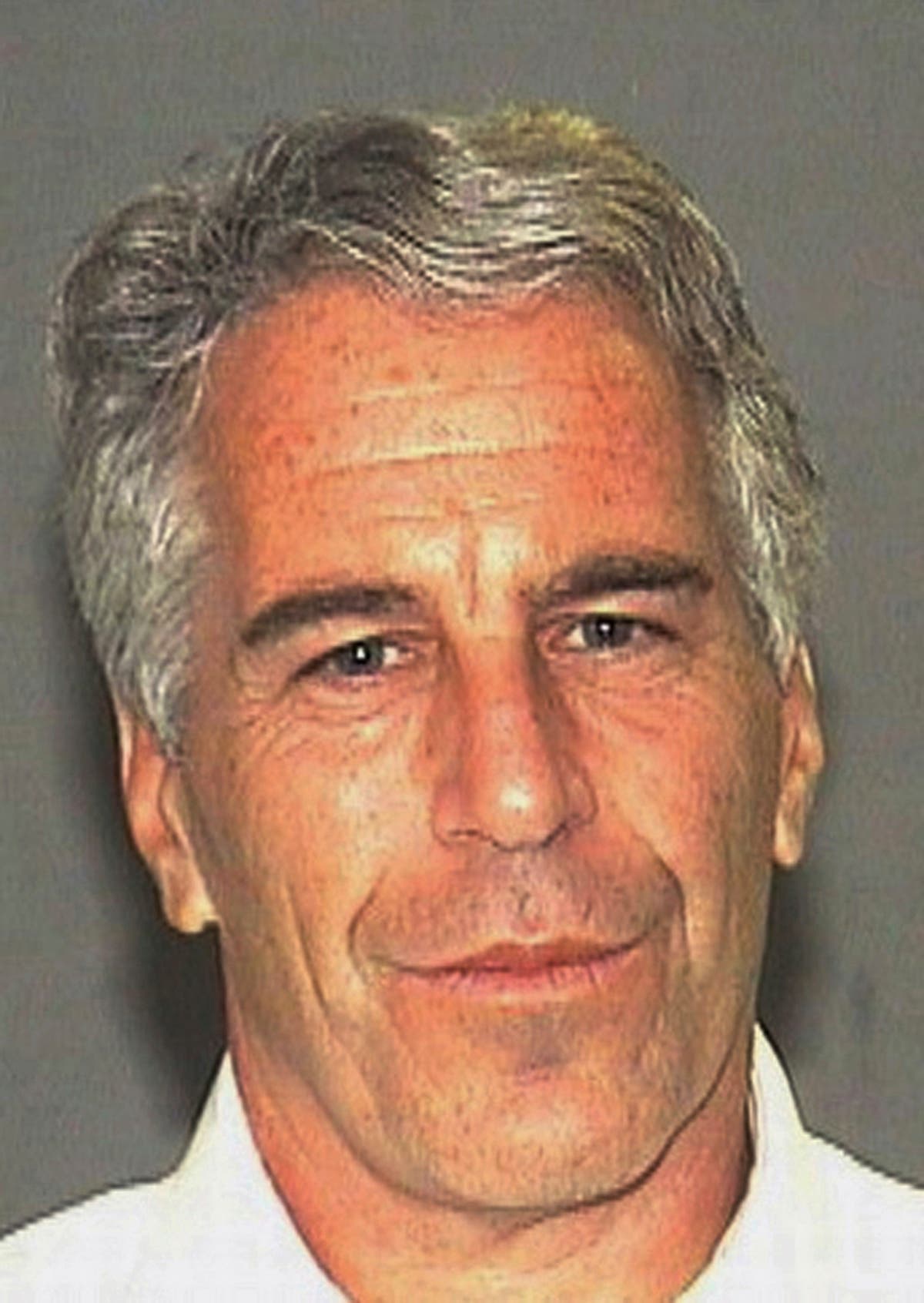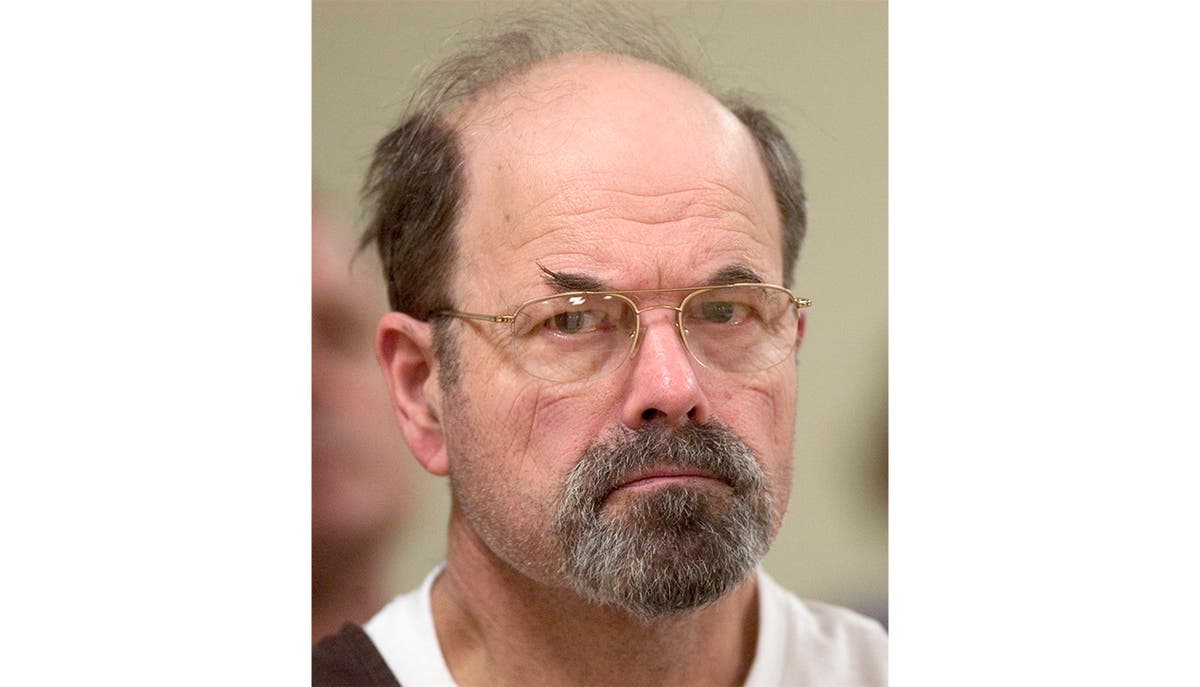
Editorial: Raid on Kansas newspaper was possibly illegal — and definitely troubling
LA TimesIt was the sort of conduct one usually associates with totalitarian governments: Law enforcement officers swarm a newspaper office and confiscate computers, servers and cellphones of reporters and editors. The searches left the small news operation in such a dire state that it was not clear whether it would be able to publish the next scheduled edition Tuesday evening; Meyer memorably described the police action as “an atomic flyswatter.” It may also have been illegal. The law broadly defines who is protected: those “reasonably believed to have a purpose to disseminate to the public a newspaper, book, broadcast, or other similar form of public communication.” The law does contain an exception for situations in which “there is probable cause to believe that the person possessing such materials has committed or is committing the criminal offense to which the materials relate.” In a statement to NPR, Marion Police Chief Gideon Cody pointed to this exception to justify his department’s search of the Record. Opinion Editorial: In San Francisco, police target a journalist — and flout the law It isn’t just journalists who should be outraged over what happened to freelance videographer Bryan Carmody in San Francisco last Friday: Police handcuffed him while they searched his home in an apparent bid to identify a confidential source. In a letter to Cody signed by the Los Angeles Times and more than 30 other news organizations, the Reporters Committee for Freedom of the Press noted that the suspect exception cited by the chief “is inapplicable when the relevant conduct consists of the receipt, possession, communication, or withholding of the material, with only limited exceptions for certain federal statutes that are not at issue here.” These searches took place in a small town, but the temptation of law enforcement to overreach in dealing with journalists exists in communities of all sizes.
History of this topic

Ex-Kansas police chief who led raid on newspaper charged with obstruction of justice
LA Times
Prosecutors’ report on Marion newspaper raid leaves questions dangling
Raw Story
Kansas reporter reaches $235,000 settlement with police chief who led newspaper raid
Raw StoryFormer reporter settles part of her lawsuit over a police raid on a Kansas newspaper for $235,000
Associated PressKansas lawmakers want a report on last year’s police raid of a newspaper
Associated Press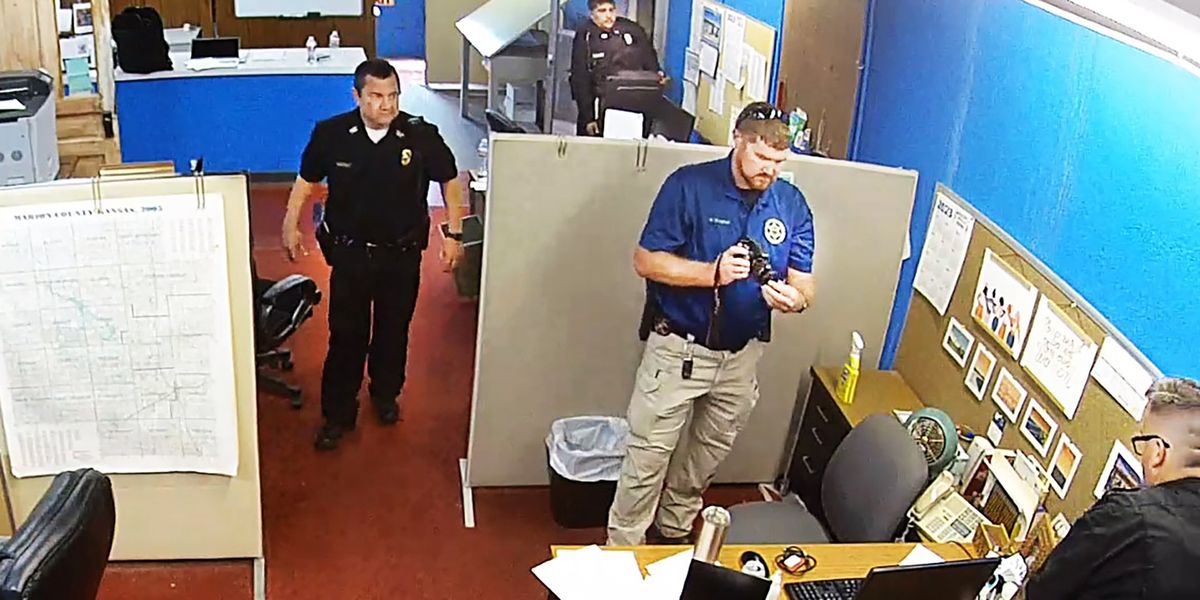
Officials downplayed involvement in Kansas newspaper raid — but here’s what they knew
Raw StoryThings to know about the resignation of a Kansas police chief who led a raid on a small newspaper
Associated Press
Opinion: Claiming a ‘computer crime’ shouldn’t give police a free pass to raid newspapers
LA Times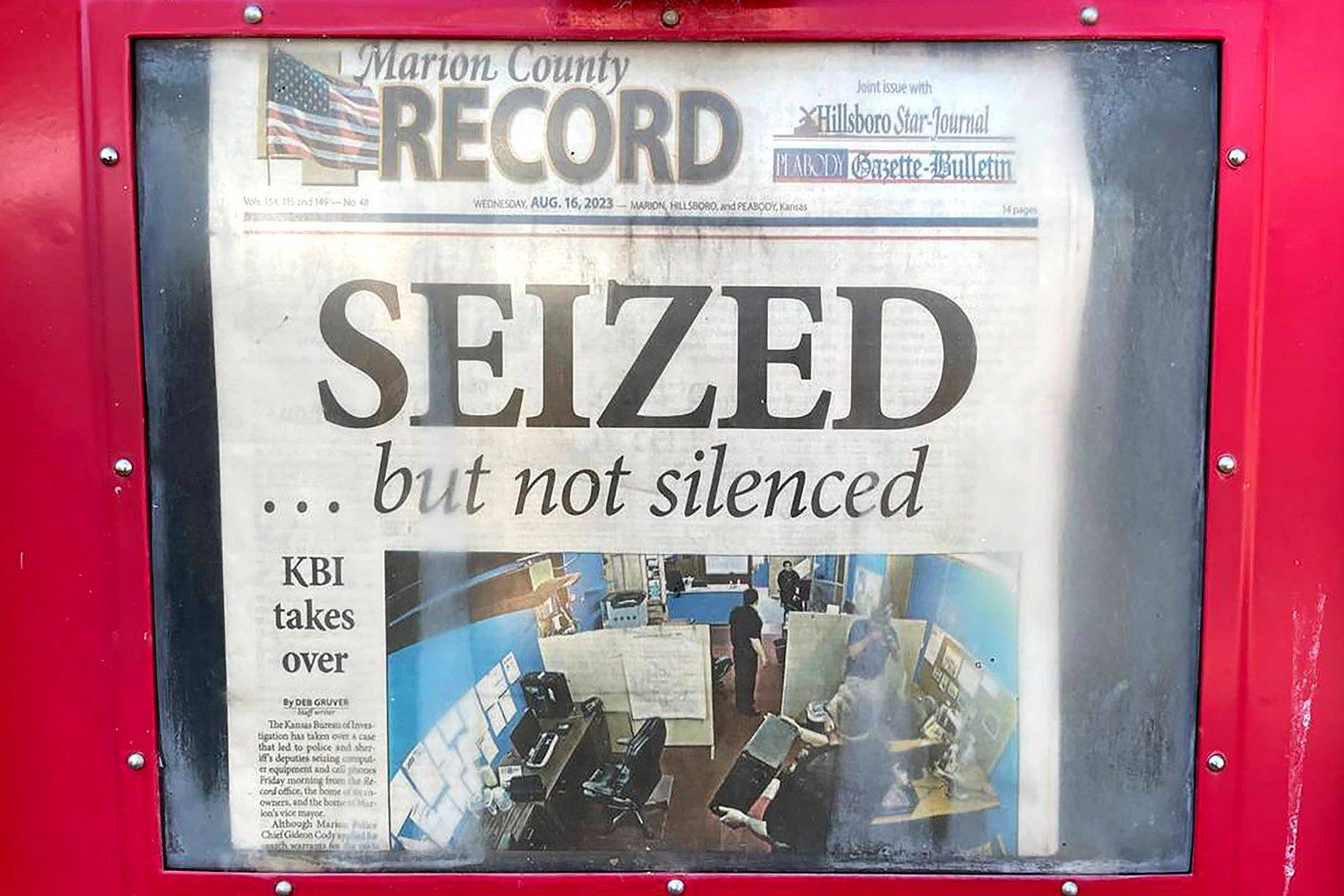
Marion Kansas newspaper raid: Why did this happen? The editor has an idea.
SlateDocuments say police believe the raided Kansas paper broke the law to get records. The paper disagrees
Associated PressA raid on a Kansas newspaper likely broke the law, experts say. But which one?
Associated Press
A raid on a Kansas newspaper likely broke the law, experts say.
LA TimesKansas prosecutor says police should return computers and cellphones seized in raid on newspaper
Associated Press
Kansas prosecutor says material seized in police raid of newspaper should be returned
LA Times
Why is a police raid on a newspaper in Kansas so unusual?
The IndependentEXPLAINER: Why is a police raid on a newspaper in Kansas so unusual?
Associated Press)
Freedom? 98-yr-old owner of US daily dies after police raid at office, house for running investigative report
Firstpost
Kansas newspaper says it investigated local police chief prior to newsroom raid
NPRA central Kansas police force sparked a firestorm by raiding a newspaper and the publisher’s home
Associated Press
Publisher's mother dies from 'shock and grief' as police defend 'brazen' raid on Kansas newspaper
Raw StoryDiscover Related





